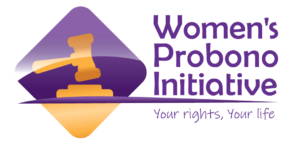CONFRONTING ECONOMIC, LEGAL AND INSTITUTIONAL BARRIERS THAT DIMINISH WOMEN’S PROGRESS.
[KAMPALA 08.03. 24] – Every year, on the 8th of March, the world comes together to celebrate the International Women’s Day; a day that recognises women’s struggles, celebrates their existence while advocating for their rights and empowerment. Women constitute a larger percentage of Uganda’s population,[1] and yet their existence is constantly challenged by the various stereotypes and discriminatory practices that not only undermine their rights but also worsen their way of life.
As we celebrate this year, we are cognizant of the various systemic, legal and economic barriers that have persistently limited women’s growth in the various spheres of life. Over the years, women and girls have been structurally silenced by patriarchal tendencies that do not value women’s choices. Speaking of tendencies that derogate women’s rights, we look at how their health rights have been subjected to progressive realization; making governments reluctant to prioritize women’s urgent need for health care. In the economic sector, women’s care and domestic work is unpaid and unrecognized and yet it is a significant contribution to the economy. There are still a number of legal and systemic barriers to women’s rights even with the Constitutional recognition of these rights under Article 33.
This year’s celebrations follow theme; ‘Invest in Women, Accelerate Progress.’ The aim is to tackle economic and social disempowerment of women. This includes focusing on the barriers on access to economic justice, economic participation, as well as access to health and education among others. Women have experienced slow realisation of economic empowerment and financial freedom. Therefore, when we speak of accelerating progress, it is important to indulge measures that equip women with the necessary power to make decisions concerning their lives without fear of any form of discrimination. Legally, legislators ought to devote time to make specifically tailored laws that address gender discrimination and stigma against women. In addressing the institutional barriers, government should enhance systems that support women’s work in the various sectors in Uganda.
As the Women’s Probono Initiative, we add a voice to the rest of the world as call for systems and programs that invest and prioritise women’s rights. We call upon the government, legislators, religious leaders, and other Civil society organisations to collectively confront economic, legal and institutional barriers that diminish women’s rights. Women need supportive and progressive policies that catalyse their growth while recognising their significant contribution to Uganda’s socio-economic growth.
For more information about WPI’s activities, please visit our website at www.womenprobono.org and our social media pages @womenprobono,wpi. Uganda et al or kindly contact us on our toll-free line +256 (0) 800-220645 OR email Maria directly at; maria@womenprobono.org and copy info@womenprobono.org
About WPI; The WPI is a reputable non-profit organisation with a vision to create a just and equitable society where women and girls are free from ALL forms of discrimination and violence. We use various programs and initiatives to create lasting change and promote gender equality at all levels.
[1] Uganda Bureau of Statistics, “Women’s Day Brochure” 2021. available at https://www.ubos.org. accessed on 4th March 2024.

